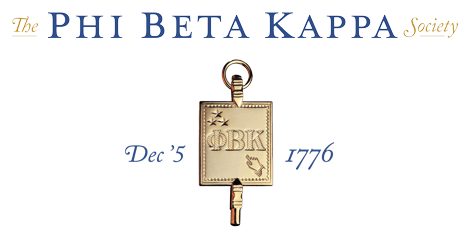Announcing the Inaugural Norman G. Pauling Research Fellowship Recipients
WASHINGTON, DC — September 3, 2024 — The Phi Beta Kappa Society is proud to announce the inaugural recipients of the Norman G. Pauling Research Fellowship for Early-Career Scholars: Abby Cahill, Associate Professor of Biology at Albion College; DeAnza Cook, Assistant Professor of History at The Ohio State University; Nikolas Sweet, Assistant Professor of Linguistic Anthropology at the University of Wyoming; Aleysia Whitmore, Associate Professor of Ethnomusicology at the University of Denver. These prestigious awards recognize and support outstanding scholars whose work exemplifies the critical role of the liberal arts and sciences as a public good. Each of the four recipients will receive a $20,000 fellowship to further their research and contribute to the broader conversation on the value of a liberal arts and sciences education.
The Norman G. Pauling Research Fellowship, established in 2023 through the generosity of Edith Pauling in honor of her late husband, is designed to nurture the next generation of leaders in the liberal arts and sciences. This fellowship aligns with the Society's mission to champion education that integrates multiple perspectives, fosters a vibrant democracy, and engages both individuals and communities in lifelong learning. The Pauling Fellowship supports scholars at Phi Beta Kappa chapter institutions who have earned a PhD or are ABD in any liberal arts and sciences field. The fellowship is specifically designed for scholars within twelve years of completing their education.
"The Pauling Fellowship is a testament to our commitment to early-career scholars whose work underscores the relevance of the liberal arts and sciences in addressing today’s most pressing challenges," said Frederick M. Lawrence, Secretary and CEO of The Phi Beta Kappa Society. "The groundbreaking research conducted by these fellows will help to reinforce the vital role of the production of knowledge in shaping a more meaningful, productive, and engaged society."
Abby Cahill, Associate Professor of Biology at Albion College, is recognized for her project titled "Mnomen (wild rice) and Mussels: Integrating Multiple Perspectives to Study River Ecosystems." This research focuses on the ecological and cultural significance of wild rice (mnomen) in the Great Lakes region, integrating scientific and indigenous knowledge to explore the health of aquatic ecosystems, particularly the relationships between wild rice and freshwater mussels.
DeAnza Cook, Assistant Professor of History at The Ohio State University, will explore the relationship between incarceration and voting rights through her project "Unlocking Democracy: An Oral History of Incarcerated Activism in Massachusetts in the Age of Mass Incarceration." Her work examines the origins and outcomes of policies disenfranchising incarcerated individuals, using historical analysis and oral histories to uncover the lived experiences of those affected.
Nikolas Sweet, Assistant Professor of Anthropology at the University of Wyoming, is conducting research on "Investigations into Gun Culture and Hunting: Perspectives from Linguistic Anthropology." This project utilizes anthropological and sociological tools to investigate the cultural significance of gun ownership and hunting in the American West, focusing on how these practices intersect with identity, community, and politics.
Aleysia Whitmore, Associate Professor of Ethnomusicology at the University of Denver, is leading a project titled "Resounding Communities: Community Music Making as Civic Engagement." Her research examines how music and social justice intersect within communities, emphasizing collective music-making practices that promote social change and community resilience.

About The Phi Beta Kappa Society
Founded on Dec. 5, 1776, The Phi Beta Kappa Society is the nation's most prestigious academic honor society. It has chapters at over 290 colleges and universities in the United States, nearly 50 alumni associations, and more than 700,000 members worldwide. Noteworthy members include 17 U.S. Presidents, 42 U.S. Supreme Court Justices and more than 150 Nobel Laureates. The mission of The Phi Beta Kappa Society is to champion education in the liberal arts and sciences, foster freedom of thought, and recognize academic excellence. For more information, visit www.pbk.org.

